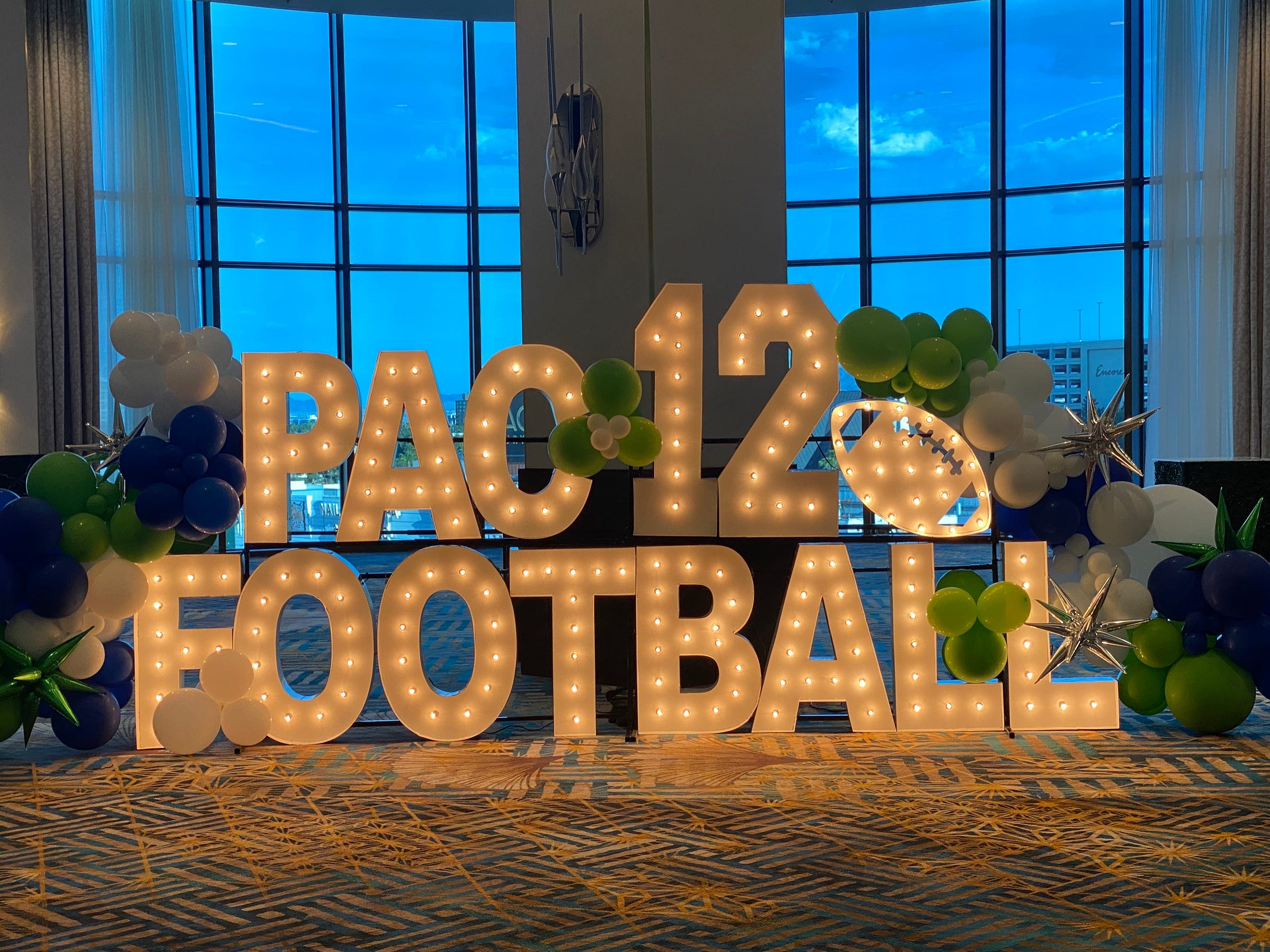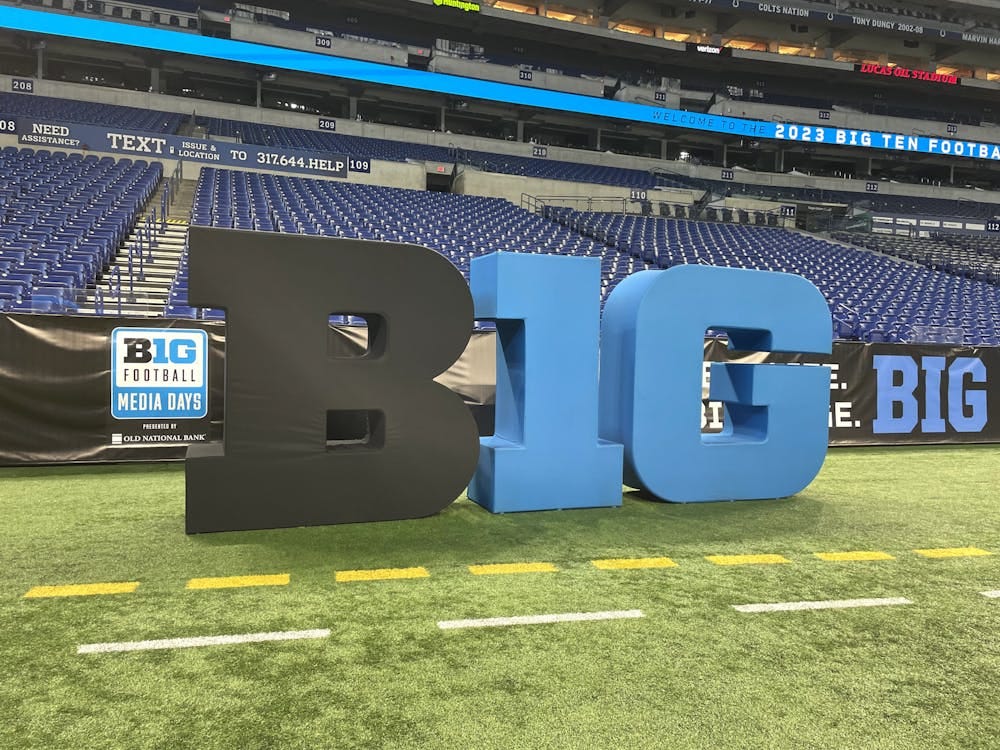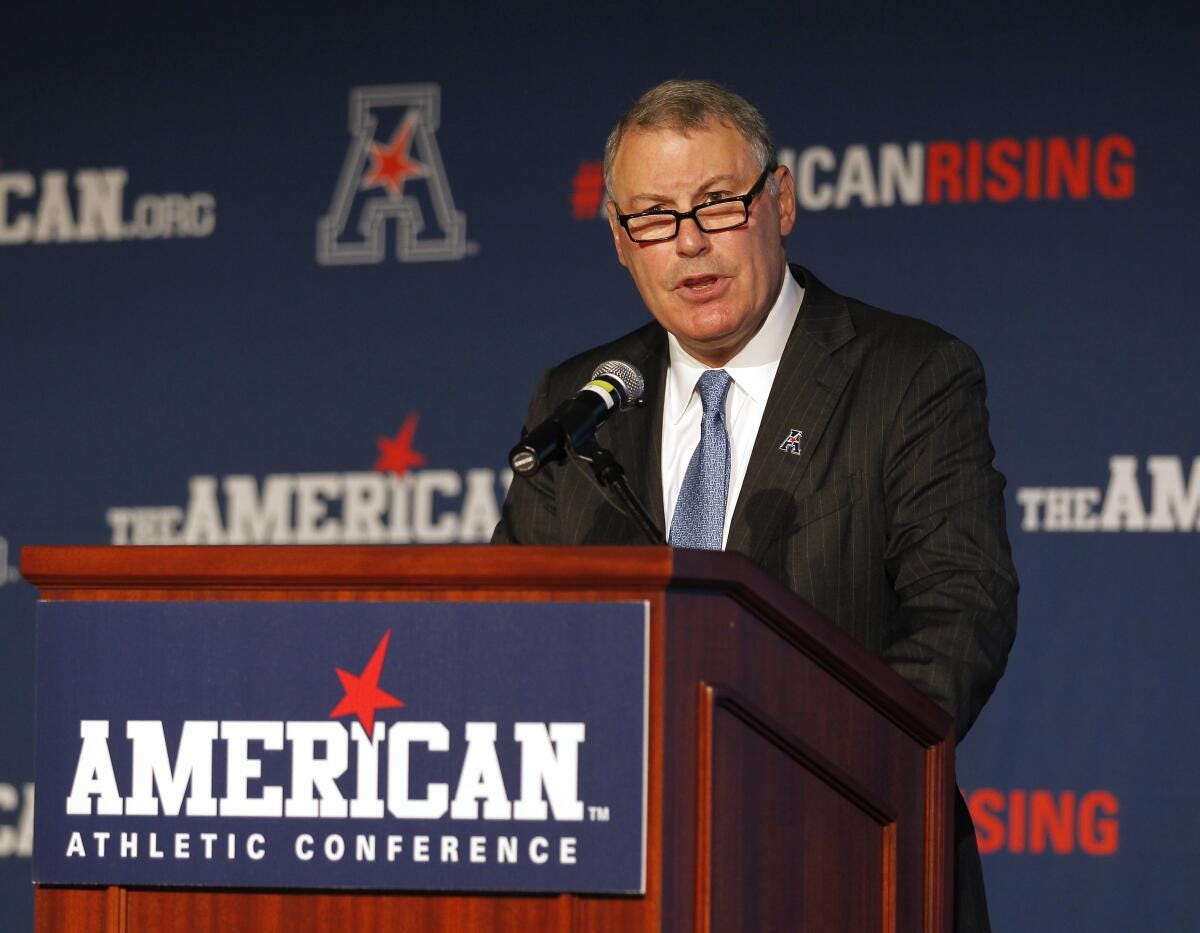Canzano: Pac-12 eyes Las Vegas for football meet-up
The two-member conference will piggyback on Big 12 and MWC events.
It turns out the Pac-12 Conference is blowing off one of my wild ideas. I’d suggested the “Conference of Champions” should reach back to its long-ago roots for football media day and hold the annual event in downtown Portland this summer.
The folks at Hotel Lucia — formerly the Imperial Hotel — were delighted to read my column on the subject. I received a note from Stephen Galvan, the director of sales at the hotel property. Galvan wrote: “Hosting the event at the original 1915 birthplace of the conference would surely garner a favorable and beneficial position for the Pac-12 as it prepares for its 2024 season.”
The Pac-12 is instead going to Las Vegas on July 10 and holding a more casual event billed as “After Hours with the Bears & Cougs, presented by the Pac-12.”
It’s a small gathering featuring Washington State coach Jake Dickert, Oregon State’s Trent Bray, a couple of players from each team, I’m told, and some media members. It will include cocktails, and snacks, and be held at The Bellagio.
Commissioner Teresa Gould will attend alongside the athletic directors of both schools. I’m told by sources that the event is more of a casual conversation than a traditional media day. The schools will also hold separate events with local media on their campuses.
Going back to the hotel in Portland where the conference was founded 108 years ago wasn’t the worst idea I’ve ever floated in this space. But it’s not going to happen this year. I’m not taking the snub personally, but if you know the folks at Hotel Lucia, loop them in.
If the Pac-12’s media meet-up comes together in Las Vegas on July 10, it will piggyback on the Big 12 and Mountain West Conference football media days. That Wednesday (July 10) happens to be the final day of the Big 12’s two-day football media day at Allegiant Stadium and the first day of the MWC’s two-day media event at Circa Resort and Casino.
Big Ten Media Day
• Big Ten Media Day is July 23-25 in Indianapolis. Commissioner Tony Petitti will address the media and give a state-of-the-union speech on Day 1. The 18-team conference is splitting the event into six-team pods over three days. The head coach for each team and three athletes will attend.
July 23: Illinois, Northwestern, Ohio State, Purdue, Rutgers, Wisconsin
July 24: Iowa, Michigan State, Nebraska, Penn State, UCLA, USC
July 25: Indiana, Maryland, Michigan, Minnesota, Oregon, Washington
I’ll be there with wall-to-wall coverage for readers of JohnCanzano.com. I spoke with a representative of the Big Ten earlier this week and talked about the logistics for the event at Lucas Oil Stadium. The football field itself will be utilized for the general media scrum and interviews. The Big Ten’s television rights holders (Fox, CBS, NBC, Big Ten Network, etc.) will be set up on the lower level of the facility, filming promotional and marketing content that viewers will see throughout the season.
Retired — and dangerous?
• Michael Aresco is retired, which makes him a dangerous man and a fun interview. The former long-time commissioner of the Big East Conference and American Athletic Conference joined Jon Wilner and me on an episode of “Canzano & Wilner: The Podcast.”
Aresco, 74, talked about his career, his thoughts on the Pac-12’s plight, the future of the Group of Five schools, and shared his view of the growing power of the Big Ten and SEC.
Said Aresco of the Big Ten and SEC: “Their strength now is a real concern. It’s not that they don’t have able leaders — and they’re friends and have been friends of mine for a long time. That’s not the issue. The issue is that it has become Darwinian. They really threw their weight around in this whole CFP process and we just didn’t have enough leverage to fight it.”
Aresco on realignment:
“Now realignment has become a complete mess,” he said. “You’ve got things that just don’t make sense. Let’s be honest, how does it make sense that Stanford and Cal are playing on the East Coast? It just doesn’t make sense. But that’s what we have to deal with now. Whether some of that is self-correcting down the road, I don’t know. I have no idea. But we’ll see.”
Aresco on the future of the Group of 5 schools:
“What the G5 have to be careful about is to be forced into a separate division,” he said. “That would be the worst thing. We had to be sure to always stay with the top guys because that’s how we viewed ourselves… it’s why I’ve opposed this G5 playoff… if you do anything that separates you from the (Power 4), it gives them more of a reason to say you’re not really in our division anymore. If you ever lost access to the College Football Playoff, you’ve got big problems. That’s your lifeblood. You can’t lose access to that. You play those teams. What you don’t want is to be like FCS and be in a separate division. You still play those teams but they don’t view you the same way.”
Listen to the full interview:
Thank you for reading. I appreciate all who have supported, subscribed, and shared my new independent endeavor with friends and family in recent months. If you haven’t already — please consider subscribing.






Sarcasm spoiler alert: A former conference, for years a legend it its own mind and now gasping for life and relevancy with 2 schools, holds a "for-the-old-times" event in a once-proud and beautiful city (where I used to live) rendered irrelevant on any sort of big stage by crippling politics and poor governmental decisions. Just dandy.
What the G5 schools (and many P4/P5 schools) need to avoid at all costs is financially overleveraging themselves. College football has become an arms race, and only very few schools (Texas, Alabama, ND, A&M, and a few others) are able to sustain today's level of spending. The worst case scenario would be spending money that doesn't materialize to the point that it sends their athletic departments into a death spiral, where draconian cuts result in lower revenues, causing more cuts.
Ultimately college sports are a financial behemoth because of football viewership, which itself is based on games that have meaningful rivalries rooted in tradition or regional identity. Realignment is throwing that all out the window, meaning the well of seemingly infinite CFB revenue is at great risk of drying up.